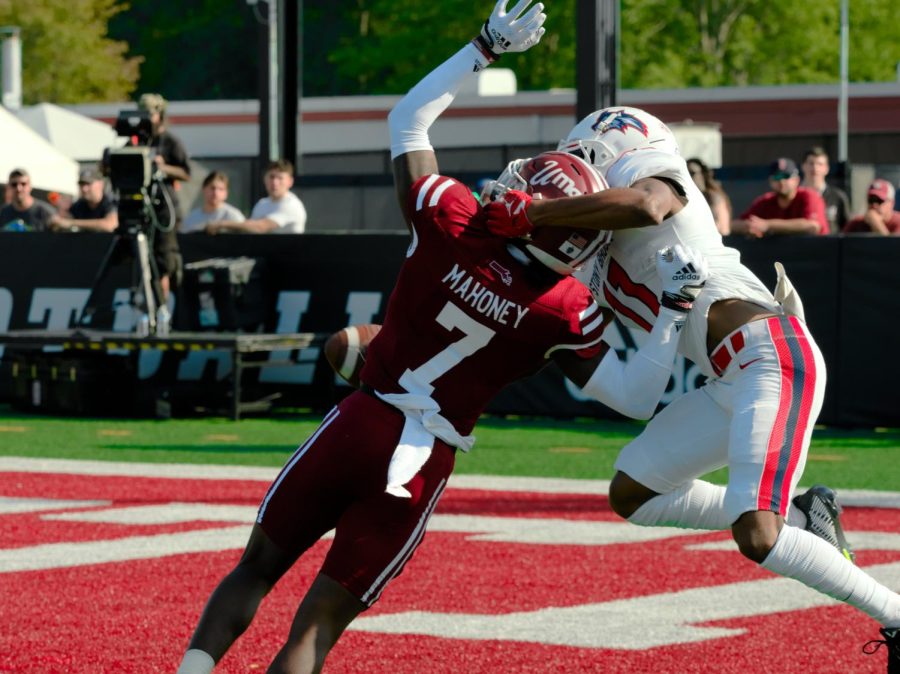“I cannot explain what it is like: watching your life, or at least the way you envisioned it, implode in front of your very eyes … I stood in shock, clueless as to what to do with myself for the next ten minutes, let alone the next ten months.”
Denied entry to the country that had defined his adulthood, Archibald Brydon stood next to the Irish Officer who had just been handed custody of him. The Irish officer turned to him, asked if he was all right, and said, “They’ve been denying entry to lots of people lately. You’ll be all right…Welcome to Trump’s America.”
This was the beginning of Brydon’s final year of college at the University of Massachusetts: an interrogation room in Dublin, where he was stripped of his second home without warning. A British international student studying journalism and minoring in history, Brydon had intended to return to the U.S. to live out his final year at UMass off-campus.
While waiting to board his flight to Boston, a customs officer didn’t believe his stated reason for returning: that he had a lease he was paying already, and that he wanted to enjoy his remaining time as a student at UMass. Instead, she insisted that he tell her if he was working a second job illegally, and when he said he wasn’t, she asked persistently to look through his phone.
He finally allowed her to, assuming he had nothing to worry about as he was not working a second job. Brydon described what happened afterwards in a blog post about the incident, where he dubbed the woman interrogating him “McKaren.”
“McKaren went back to her desk, filled in a form, before explaining she had looked through all my photos and text messages, and there was photo and video evidence of me ‘smoking and drinking at parties in the U.S’ and ‘smoking marijuana,’” Brydon said.
“She said this evidence spanned from my last stay in the U.S, back to when I was in high school in 2015. I explained I was far from perfect, had made some mistakes, but I was a college student; most importantly, this was not what she said she was looking for. This was not what I agreed to,” Brydon wrote. “McKaren replied, ‘If it was child pornography, would you expect me to have overlooked it?’”
Before the pandemic, losing his student visa would have meant losing his ability to finish college at UMass. However, due to the remote format, and with help from the University, he was able to continue all his classes and stay fully enrolled. He ended up landing in Paris, where he lived alone in an apartment to finish out the semester.
“I really enjoyed it. I could manage my own time and do things at my own pace,” Brydon said. “And I guess also, living by myself helps take away some of the distractions. I mean, good distractions, but the distractions that I suppose you normally have in college.”
One of those “distractions” that Brydon missed the most was his time on the UMass Rugby team, where he is the team captain. However, he said past experiences of moving from Edinburgh, London and to the U.S. for high school and college, prepared him well to keep in touch with friends over long distances.
“I’m still involved in [rugby], we’ve got Zoom staff and fitness competitions and all sorts of things that I can pretend to lead the way in. It’s something I’m used to, just because I’ve already moved around a bit,” Brydon said. “I’m used to staying in touch with people.”
During the first lockdown in the United Kingdom, Brydon began reading and writing in his leisure time, something that he continued while in Paris, ultimately turning some of his writing into a book.
When asked about the highlights of the semester, his time in Paris was one of them, where he said more time by himself allowed him “to explore different interests, and honestly, just grow up a bit.” During quarantine, he wrote 85,000 words of the book.
“I mean, I’ve written a book from beginning to end by now. I need to make it something that I’m willing to share and something that I think people will want to read,” he said. “I guess I’m proud of myself for actually doing it, you know, and putting so many words onto a page. And I do think, even if nobody else agrees, if I can finish and put my name on something that I’m happy with that encapsulates this kind of moment in time for me, personally, then I will be happy with that.”
When asked about his plans at the end of December, Brydon still had personal items in his apartment in Amherst that he had yet to get and was hoping to apply for a visitation visa. He was in Scotland visiting his family.
“After I was denied entry to the U.S., and just having it all kind of turned on its head, I think that’s something that me as a year ago, even earlier this year, I don’t know how I would have dealt with it or rebounded,” he said. “And it was difficult, but at the same time, I think I’ve turned it into a positive. . .made the most of what I’d done. And I would have loved the final year in the U.S., but I had three good ones. I made a ton of friends that I know full well aren’t going anywhere.”
“I think it’s a testament to the teachers and to the University, and everyone involved, also just technology, that it’s been able to still resemble something close to a college experience,” Brydon added. “To still be able to go into these classes and still learn a lot and still, you know, have that experience, even if you’re not doing it firsthand.”
“I think it asks a lot of questions about what the pay and for tuition wise and what the college experience is really about, you know, if you are just doing it to get a degree … now I think it is incredible how, how close to and how valuable, I guess, it has been nonetheless.”
While the semester was, in Brydon’s words, the equivalent of closing one door only to open another, losing his student visa will complicate his ability to travel to the U.S. for the rest of his life.
“There will be some questions asked, but one of the three questions is, have you ever been denied entry to the United States? And for the rest of my life, that will be yes. … I will now need to likely prove that I don’t have a substance abuse issue and get drug tested,” he said.
“Occasionally, they grant visitation reasons as long as 10 years and you can come and go freely on that visa. Obviously, you can’t study or work or do anything in it. But you get to step foot on hallowed U.S. soil, which is more than I can currently do. So that’ll be a start,” Brydon said.
Since the fall semester, Brydon has spent most of his time in Scotland, and has yet to gather the remainder of his belongings from Amherst. He just submitted his first piece for publication to an arts magazine in London, where he was hired as a paid freelance writer.
Claire Healy can be reached at [email protected].



















